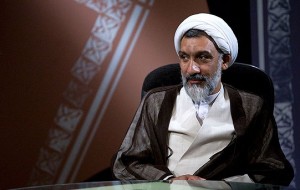 TEHRAN (FNA)- Iranian Justice Minister Mostafa Pour-Mohammadi called for the extradition of the members of the terrorist Mojahedin-e Khalq Organization (MKO, also known as MEK, NCRI or PMOI) to Iran to face trials for the offenses and crimes they have committed in the country in the last several decades.
TEHRAN (FNA)- Iranian Justice Minister Mostafa Pour-Mohammadi called for the extradition of the members of the terrorist Mojahedin-e Khalq Organization (MKO, also known as MEK, NCRI or PMOI) to Iran to face trials for the offenses and crimes they have committed in the country in the last several decades.�The terrorist MKO members should be handed over to Iran to be put on trial for their crimes against the Iranian nation,� the Iranian justice minister told reporters in Tehran on Sunday.
Pour-Mohammadi underlined that the MKO agents must stand trial for killing �thousands of our citizens�, damaging the Iranians� public properties and �helping our enemies.�
�These individuals are criminals and guilty and they must be handed over to our courts so that we would deal with their offenses,� the Iranian justice minister added.
In relevant remarks last week, Iraq's Justice Minister Hassan Al-Shammari announced that Iran is entitled to the right to ask for the extradition of the terrorist MKO members.
�According to an agreement signed between Iran and Iraq on the swap of prisoners, Iran can ask for the extradition of the MKO members,� the website of the Islamic Supreme Council of Iraq (ISCI) quoted Al-Shammari as saying.
The Iraqi justice minister noted that if Iran asks for the extradition of MKO members, Iraq will hand them over to Iran.
The last group of MKO terrorists at Camp Ashraf, now called Camp New Iraq, was evicted by the Iraqi government on September 11 to join other members of the terrorist group in the former US-held Camp Liberty, now called Camp Hurriya, near Baghdad International Airport where they are awaiting relocation to other countries.
The MKO, founded in the 1960s, blended elements of Islamism and Stalinism and participated in the overthrow of the US-backed Shah of Iran in 1979. Ahead of the revolution, the MKO conducted attacks and assassinations against both Iranian and western targets.
The group started assassination of the citizens and officials after the revolution in a bid to take control of the newly-established Islamic Republic. It killed several of Iran's new leaders in the early years after the revolution, including the then President, Mohammad Ali Rajayee, Prime Minister, Mohammad Javad Bahonar and the Judiciary Chief, Mohammad Hossein Beheshti who were killed in bomb attacks by the MKO members in 1981.
The group fled to Iraq in 1986, where it was protected by Saddam Hussein and where it helped the Iraqi dictator suppress Shiite and Kurd uprisings in the country.
The terrorist group joined Saddam�s army during the Iraqi imposed war on Iran (1980-1988) and helped Saddam and killed thousands of Iranian civilians and soldiers during the US-backed Iraqi imposed war on Iran.
Since the 2003 US invasion of Iraq, the group, which now adheres to a pro-free-market philosophy, has been strongly backed by neo-conservatives in the United States, who eventually took the MKO off the US terror list.
The US formally removed the MKO from its list of terror organizations in early September 2012, one week after the then Secretary of State, Hillary Clinton, sent the US Congress a classified communication about the move. The decision made by Clinton enabled the group to have its assets under the US jurisdiction unfrozen and do business with the American entities, the State Department said in a statement at the time.
By Fars News Agency
The Iran Project is not responsible for the content of quoted articles.










